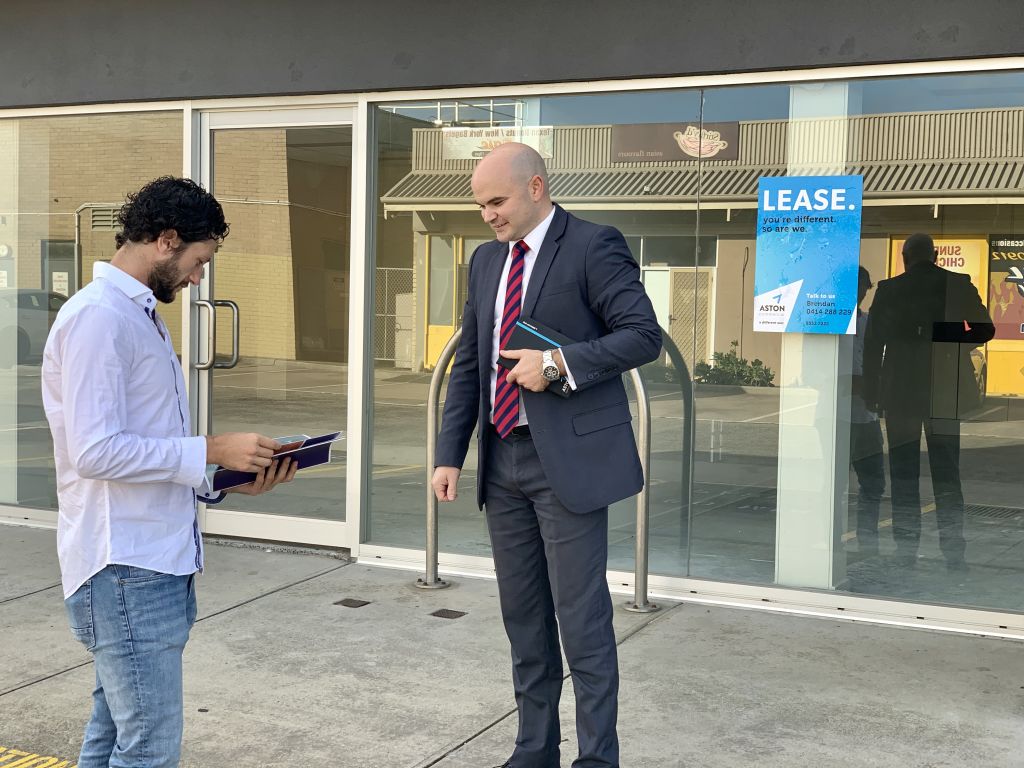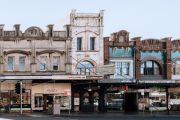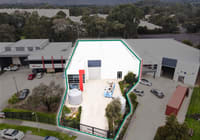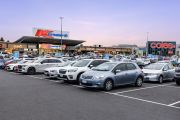
Leasing agents in Melbourne tell how the coronavirus has affected their day to day lives
Brendan Burmistrow
Commercial senior leasing executive, associate, Aston Commercial
In normal times, how do you spend your day?
We have around 15,000 tenant contacts in different categories in most retail strips, office precincts, shopping centres, retail arcades and industrial estates throughout Melbourne and offer all client services including management, sales, leasing, buyer advisory and project marketing. Prior to COVID-19, I was constantly in appointments with clients, at inspections, going through papers, sending and reading emails, doing research, marketing, training staff, talking to all the stakeholders involved, and offering strategic leasing advice amongst many other things.
How has coronavirus impacted the office-leasing industry and your work?
Today, I wake up and am straight at my computer, in constant communication to try to help tenants and offer them a bit of comfort. Usually we have, on average, 80-odd properties at any one time for lease, and would get four to five inquiries for each one, so would be dealing with 200 to 250 inquiries a week. That went down during the pandemic to 15 to 20 a week. People are also looking at opportunities to get a bargain in this climate with a property currently leasing for $200,000 maybe down to $100,000 on a five-year lease with incentives. But we’re noticing more recently that there’s a bit more positivity and optimism around with the hope that the lockdown will soon ease.
Do you believe it will have a substantial long-term effect, or will things, in time, return to how they were before the pandemic?
I think, initially, things will go back to normal straight away, but office tenants, once their leases expire, will review how much space they need when so many people have adapted well to working from home and they’ve mastered the technology to introduce new efficiencies. Then they might decide they need 25 per cent less space, with rotating rosters and home-working and technology. Hospitality like restaurants, pubs and nightclubs might also have changed needs with perhaps 100-seat restaurants restricted to only seat 50 people until a vaccine is found. Industrial may expand with an opening for more manufacturing in Australia. We’ve seen a number of companies shut down their overseas operations and bring them home and we may see a lot more of that.
Has your day changed much with changes in trends with office leasing?
With COVID-19 we obviously did fewer inspections and were out and about less. We had videos of property taken by professionals to show them to prospective tenants, and also used YouTube and social media for marketing. We also allowed more pop-up tenancies for maybe storage, or parents who had trouble working from home with six kids. It encouraged flexibility and the rent helped cover outgoings.
Is the job harder?
Yes, it is in some ways. A lot of landlords with big new developments offer large upfront incentives which puts a strain on mum-and-dad investors who own small offices. They don’t have the money to compete. It’s no different to retail where someone might build a huge residential tower and put a restaurant on the ground floor with a well-known restaurateur at the helm, so smaller investors struggle. Online shopping has also impacted some retail sectors. with some former fashion retail strips moving to hospitality and health and well-being instead. We’ve started putting commercial office tenants in ground-floor retail spaces and it takes time to convince them of the benefits.
What do you see as the challenges going forward?
Post-COVID-19, I think there’ll be a spike in demand as people want to get together and go out again. Food and beverage will bounce back and industrial will be OK, while offices will downsize so the large-floorplates will be more difficult to move. The movement of companies back to Australia will have a whole series of economic implications.
Has the relationship with clients changed?
I don’t think so. We’ve maintained constant communication and launched marketing initiatives to let them know we’re fighting for them. We’ve been using Zoom instead of face-to-face meetings to make sure we’re still in touch.
What have been the favourite projects you’ve worked on?
We were appointed early on to The Malt District, the old brewery site in Richmond. that will combine heritage architecture with urban design and innovation to create a new destination for Melburnians, with apartments, boutique retail, hospitality and office space. We gave the client a lot of bespoke strategic advice around attracting tenants and to see that area in Cremorne come back to life is very pleasing every time I drive past. It’s going to be a really exciting precinct.
What’s been the most challenging task you’ve ever been faced with, and how did you manage it?
COVID-19, without question. Tenants don’t want to make decisions as they’re nervous in this current environment and there are a limited number of inquiries, so we have to provide everyone with great service. It’s a challenge to keep everyone motivated and there’s a lot of negotiation around doing deals. But we all know we’ll get through this, with empathy and professionalism.
Richard Norman
Director, office leasing, JLL Melbourne
In normal times, how do you spend your day?
I specialise in the office leasing market and work with clients across a range of assets in the Melbourne CBD and fringe markets. A typical day involves preparing for, and conducting, client meetings, tenant inspections, phone calls, pursuing leads, speaking and meeting with industry colleagues and keeping up with paperwork.
How has coronavirus impacted the office-leasing industry and your work?
Beyond working remotely and with restricted face-to-face meetings, conduct of daily activities has shifted significantly towards video conferencing. Leasing activity during the opening months of 2020 was very positive with increased levels of tenant activity and demand. With the required shift to remote working, ourselves and our clients are pivoting our work practices to respond in this time of change.
Do you believe it will have a substantial long-term effect, or will things, in time, return to how they were before the pandemic?
COVID-19 seems to be placing the office markets into a holding pattern of sorts as decision-making is stalled. The true effect will be hard to predict until normal business activities return. The ability to work remotely is being fully tested across all businesses, and the market is witnessing continued demand from business responding to the crisis – like call-centre requirements. In time, I would expect normality to return to the market.
Has your day changed much with changes in trends with office leasing?
My role to advise clients hasn’t changed, however, there is an increased need to understand aspects of the workplace that may influence an occupier’s decision-making and motivation. Working at JLL, I have access to the knowledge and understanding of changing trends through our consulting, research and advisory streams of the business which allows me to continually add value.
Is the job harder?
Not necessarily harder, just a requirement to be more efficient with your time and tasks. The role of office leasing remains competitive for listings, securing outcomes and creating a point of difference. Being proactive, thinking creatively and adding value certainly remains the key to many clients’ needs.
What do you see as the challenges going forward?
The immediate challenge relates to remote working and normality returning to our day-to-day working activities. The impact this may have on workplaces and occupiers’ future office needs will evolve and our industry will adapt whatever the outcome.
Has the relationship with clients changed?
A strong client relationship remains key with all activities. Unearthing opportunities, listings, referrals to new clients and the opportunity to influence decision-making by clients remains key to the profession and ongoing relationships. This is a time of uncertainty and we are in a position to continue to add value to our clients with our market-leading research, global experience and consulting capabilities.
What have been the favourite projects you’ve worked on?
All projects have elements of interest. Pre-leasing development roles and larger project leasing campaigns are always rewarding. However, it’s mostly the people we interact with on campaigns that provide memorable experiences. Creating long-term relationships is one of the upsides of the industry.
What’s been the most challenging task you’ve ever been faced with, and how did you manage it?
No particular leasing task stands out more than another, however, managing personality clashes and differing motivations of parties can often create a challenge. Remaining consistent and transparent in your conduct tends to resolve most challenging situations.










